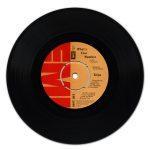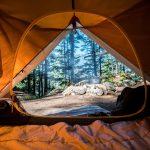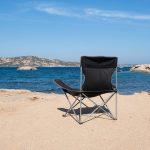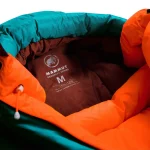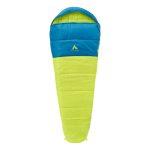What Sleeping Bag Size do I need? (Charts for Men, Women and Kids)
A sleeping bag is a warm-lined padded bag to sleep in, especially when camping on cold nights. It is a lightweight quilt that can be closed with a zipper or similar device to form a tube. Its synthetic insulation serves the primary function of offering warmth and thermal insulation (skip straight to the Sleeping Bag Size Charts).
Sleeping bags keep you warm by trapping the warm air around you; like with a blanket on your bed, it keeps your body heat in the filling. Air is a fantastic insulator but a poor heat conductor. Mountain sleeping bags often have zip and drawstring to keep the top, snug around you. They are mummy-shaped.
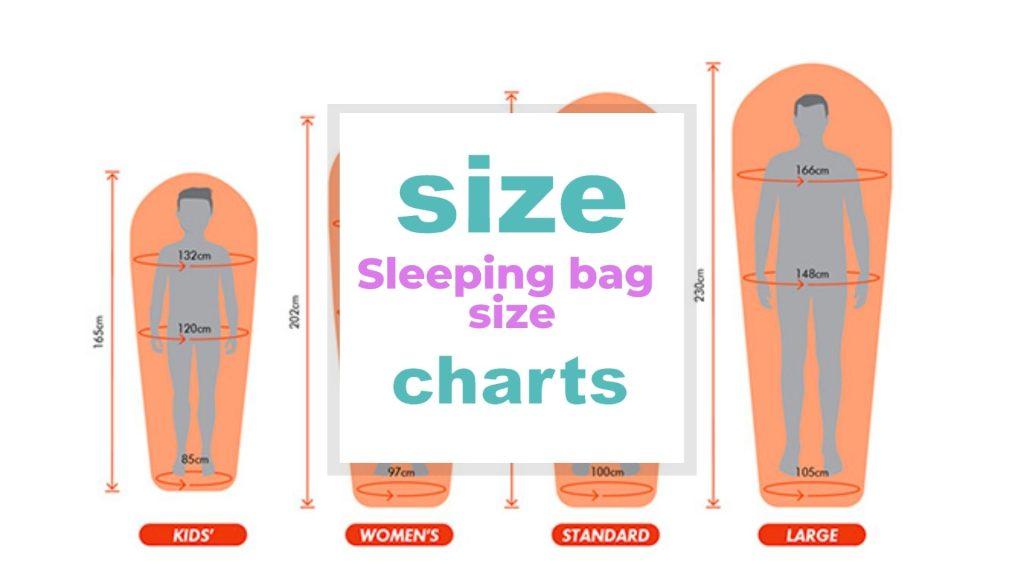
Because your weight compresses the cloth, the sleeping bag cannot insulate you from below; therefore, it only functions as your mat’s insulation on chilly terrain.
Jump right into the Frequently Asked Questions
Related: What Size is Carry On Luggage?, Rv Size Chart – A Guide To Choosing RVs and Campers
Sleeping bag size Table of Contents
- Sleeping Bag Temperature Rating
- Kid sleeping bag size chart
- Women/Men sleeping bag size chart
- Standard sleeping bag size chart
- Large sleeping bag size chart
- How to the right sleeping bag size
- Frequently asked questions
Sleeping Bag Temperature Rating
Related: Travel Trunk Size Chart – Understanding The Best One For You
Different persons will feel warmer or colder in the same sleeping bag under the same conditions. You can use a measurement system to help direct you.
Though not all manufacturers will use this approach, if EN13537 follows the sleeping bag rating, then the manufacturer is. The rating system provides a range of numbers rather than just one for the bag.
- Upper Limit – the warmest temperature that a person could comfortably sleep in the bag while leaving their arms and head outside and having the zip open. If it’s any hotter, they won’t be able to sleep because they’ll be perspiring.
- Comfort Temperature – The degree of warmth necessary for sound sleep.
- Lower Limit – the lowest temperature at which a person could still sleep for eight hours without feeling cold.
- Extreme – the lowest temperature at which a person might remain alive for six hours without becoming hypothermic.
Kid’s Sleeping Bag Size Chart
Related: Travel Size Toiletries for Airplane Bags
| Sleeping bag | Kid’s | ||
| shape | back length | shoulder circ | Hip circ |
| Rectangular | 165 cm 65 in | 132 cm 52 in | 120 cm 47.2 in |
| Rectangular | 165 cm 65 in | 135 cm 53.1 in | 135 cm 53.1 in |
Women’s/Men’s sleeping size chart
Related: Carry on luggage sizes and dimension guide
| Sleeping Bag | Women/Men | ||
| shape | back length | shoulder circ | Hip circ |
| Relaxed Mummy | 202 cm 80 in | 150 cm 59 in | 138 cm 54.7 in |
| Relaxed Mummy | 202 cm 80 in | 150 cm 59 in | 138 cm 54.7 in |
| Relaxed Mummy | 202 cm 80 in | 150 cm 59 in | 138 cm 54.7 in |
| Rectangular | 135 cm 53.1 in | N/A | N/A |
| Relaxed Mummy | 185 cm 72.8 in | 162 cm 63.8 in | 133 cm 52.4 in |
| Rectangular | 212 cm 83.5 in | 172 cm 67.7 in | 172 cm 67.7 in |
Standard Sleeping Bag size chart
Related: Back Pack Size Chart for adults and kids
| Sleeping bag | Standard | ||
| shape | back length | shoulder circumference | Hip circumference |
| Mummy | 215 cm 84.6 in | 153 cm 60.2 in | 130 cm 51.2 in |
| Mummy | 215 cm 84.6 in | 153 cm 60.2 in | 130 cm 51.2 in |
| Mummy | 215 cm 84.6 in | 153 cm 60.2 in | 130 cm 51.2 in |
| Relaxed Mummy | 215 cm 84.6 in | 156 cm 61.4 in | 138 cm 54.3 in |
| Relaxed Mummy | 215 cm 84.6 in | 156 cm 61.4 in | 138 cm 54.3 in |
| Relaxed Mummy | 215 cm 84.6 in | 156 cm 61.4 in | 138 cm 54.3 in |
| Rectangular | 215 cm 84.6 in | 160 cm 63 in | 155 cm 61 in |
| Mummy | 200 cm 78.7 in | 160 cm 63 in | 135 cm 53.1 in |
| Mummy | 220 cm 86.6 in | 163 cm 64.2 in | 135 cm 53.1 in |
| Relaxed Mummy | 200 cm 78.7 in | 160 cm 63 in | 135 cm 53.1 in |
| Rectangular | 206 cm 81.1 in | 167 cm 65.7 in | 167 cm 657 in |
| Rectangular | 227 cm 89.4 in | 172 cm 67.7 in | 172 cm 67.7 in |
Large Sleeping Bag size chart
Related: Carry on luggage sizes and dimension guide, Back Pack Size Chart for adults and kids
| Sleeping Bag | Large | ||
| shape | back length | shoulder circumference | Hip circumference |
| Mummy | 230 cm 90.5 in | 163 cm 64.2 in | 140 cm 55.1 in |
| Mummy | 230 cm 90.5 in | 163 cm 64.2 in | 140 cm 55.1 in |
| Mummy | 230 cm 90.5 in | 163 cm 64.2 in | 140 cm 55.1 in |
| Relaxed Mummy | 230 cm 90.5 in | 166 cm 65.4 in | 148 cm 58.3 in |
| Relaxed Mummy | 230 cm 90.5 in | 166 cm 65.4 in | 148 cm 58.3 in |
| Relaxed Mummy | 230 cm 90.5 in | 166 cm 65.4 in | 148 cm 58.3 in |
| Rectangular | 230 cm 90.5 in | 170 cm 67 in | 165 cm 65 in |
| Rectangular | N/A | N/A | N/A |
| Rectangular shape | N/A | N/A | N/A |
| Mummy | 233 cm 91.7 in | 160 cm 63 in | 135 cm 53.1 in |
| Mummy | 233 cm 91.7 in | 165 cm 65 in | 135 cm 53.1 in |
| Relaxed Mummy | 212 cm 83.5 in | 164 cm 64.6 in | 135 cm 53.1 in |
| Rectangular | N/A | N/A | N/A |
| Rectangular | 242 cm 95.3 in | 176 cm 69.3 in | 176 cm 69.3 in |
How to the right sleeping bag size
Related: Rv Tire Size Chart And Sizing Guide, RV Mattress Size Chart – Ultimate Buying Guide
There are proper and improper sleeping bag fitting techniques and more individualized, preference-based standards. So how can you determine whether a bag fits and is the correct bag for you?
The shape of the sleeping bag
They should shape your sleeping bag according to the camping you intend to conduct. The three basic shapes of bags are rectangular, semi-rectangular, and mummy-shaped. We’ll break it down to assist you in selecting the shape that best suits your style.
1. Rectangular shape — This is a non-tapered design, as the name suggests, which is less effective at heating and constrictive while sleeping.
Because of their flexibility, warm-weather car campers frequently used rectangular-shaped sleeping bags. Consider this bag if comfort, rather than warmth-to-weight efficiency, is your first concern.
2. Mummy—The mummy bag, which is the most common design and has a snug fit that tapers toward the feet, is the warmest choice. The least amount of air is allowed to pass between you and the bag’s extra insulation wall in this configuration, which means less air to heat.
It is the best option for hiking or technical trips that call for packability and a high level of extra warmth because its effective shape makes it lightweight and easy to pack; body heat loss.
3. Semi-Rectangular—This cross between a mummy and a rectangle form is for fair-weather campers who need warmth but also want extra space for comfort.
A semi-rectangular bag can work for fair-weather journeys and is also effective enough for brief backpacking expeditions, despite not being as warm as mummy bags that can last three to four camping seasons.
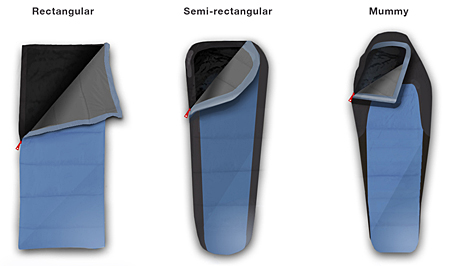
Sleeping Bag Fit
Sleeping bags are designed to meet your adventure’s requirements. Performance Fit encompasses most of our Fast & Light bags. They are trimmed with moderate girth for comfort to enhance heat efficiency and reduce packed size. It’s balance in the wilderness! The Ultralight sleeping bag is even more streamlined and reduces inside space for those watching every ounce.
There are W.A.R.M. Fit for travelers who are more concerned with comfort. The various range of sleeping bags has this type of fit. To balance space and thermal efficiency, they dove into their chilly chamber. You can sleep however you like because there is more inside space despite being a little heavier and larger than Performance Fit. Welcome to your coziest nights yet under the stars in the wilderness.
Understand that some campers find it uncomfortable when a bag seems too tight, so there is an added girth to the mummy bags where other manufacturers don’t, between the hips and shoulders, to help offset this sensation.
This allows sleepers the ability to walk about and dress in a jacket during freezing weather. In the end, however, it comes down to personal preference; finding the correct mix will improve your bag’s functionality.
Sleeping Bag Length
Although it may seem simple, sleeping bags are measured according to their length, and the ideal length for your bag should be per your height. For instance, sleep in a sack around the same length if you are 6 feet tall.
But don’t expect a 6-foot sleeping bag to fit like a glove made of latex. A 6-foot-tall person will have the extra room required for a proper fit because a 6-foot double sleeping bag will really measure around 6-foot-8 inches long.
Why is there more space?
When we lie down, our bodies expand, our feet move forward, and our spines loosen up. Therefore, designers of the lightest sleeping bags make up for this by extending the length by a few extra inches.
The aim is to reduce extra space as much as possible because extra space costs more energy to heat. Choose a synthetic sleeping bag size that fits your height accordingly. There is three range of size of Therm-A-Rest sleeping bags: small (5 feet, 6 inches), normal (6 feet), and long (6 ft. 6 in.).
Choose the size most closely matches your height, guaranteeing a soft sleeping position. Waterproof stuff sack helps in cold temperatures and warm temperatures and ensures the optimum temperature.
Finding Your Fit
If you can, try them on to ensure the proper fit, just like you would with a jacket. Understanding that every perfect sleeping bag brand and model will fit differently is crucial.
Therefore, choosing the ideal ultralight backpacking bag requires time and research, but with the help of this article, we hope you can find it.
Ensure you have warm nights by conserving body heat from heat loss for a long period of time using these water resistance camping stuff sacks.
Learn more about how to get the correct sleeping bag (video)
Frequently Asked Questions
1. How do you know what size sleeping bag to get?
Consider the lowest temperature you expect camping in a while using this bag. Then reduce that temperature by 10 degrees. Choose a sleeping bag with such a grade for the new temperature.
2. What does 20 mean in sleeping bags?
a 20°F bag
3. Are sleeping bags regular or long?
Although it may seem simple, sleeping bags are sized by their length, and the ideal length for your bag should be under your height.
4. What are the 5 types of sleeping bags?
The wide range of shapes includes rectangular sleeping bags, Barrel-shaped sleeping bags, Mummy sleeping bags, Double sleeping bags, and Elephant’s foot sleeping bags.
5. What does 200gsm mean on a sleeping bag?
GSM stands for Grams per Square Meter. Thus, the higher the number, the more weight there is per square meter
6. What does a 40-degree sleeping bag mean?
a 40°F piece of gear should keep you comfortable down to 40°F
7. What is a 3-season sleeping bag?
Sleeping bags for 3-season are made for chilly autumn and winter nights without frost. Key factor.
Conclusion
The more expensive bags feature lower temperature ratings, higher fill capabilities, and lighter weights. Avoid compressing these bags as much as possible since the more the fibers are compressed, the faster they degrade and lose their insulating properties.
A backpacking sleeping bag is a piece of essential equipment for thru-hikers, wilderness travelers, and “out there” enthusiasts. Common types. The best approach to determine whether the hood is the correct fit for you, if possible, is to visit a gear shop and check sleeping bags out firsthand. ideal choice
Lastly, we hope you consider the environmental influence while deciding on a sleeping bag. The challenge of avoiding detrimental environmental effects in the supply chain is a source of debate in outdoor gear manufacturing. As a consumer, you should know that high-performance materials can demand the environment.
For instance, polyester, the most widely used fiber in the world and material used extensively in the outdoor sector, including several bags and quilts, has a significant negative influence on the environment in several ways. But polyester makes it possible for the lightweight, long-lasting performance that modern adventurers have grown to demand from their gear.
We hope our sleeping bag was helpful when searching for the right sleeping bag size and shape. For any questions, leave them in the comment section, and we will gladly respond to you.
Picture in this post is by Martin Jernberg on Unsplash
Related to Sleeping bag size
- O’Neill Wetsuit Size Charts
- Poker Chip Size Guide
- Baseball Card Size Guide
- Bocce Ball Court Size and Dimensions
- Pool Cue Length – Why it is Important?
- Helicopter Sizes and Different Types
- Chessboard Dimensions: What Is The Size Of It?
- Vinyl Record Size and Dimensions
- Ping-Pong Ball Size Chart
- Dolls Size: What Are the Different Sizes of Dolls?
- Bowling Ball Size and Dimensions
- What is the Size of a Playing Card?
- Basketball Size Guide
- Volleyball Size Chart
- Beer Pong Table Dimensions
- Tent Size Chart for Road, Wedding…
- Jet Ski Size: Which Size Should You Go For?
- Sailboat Size Guide for Beginners and PROs
- Rooftop Tent Size Chart
- Martial Arts Ring Sizes
- Portable Folding Chair Size for Camping, Sports…
- Mammut Sleeping Bag Sizes
- McKINLEY Sleeping Bags Sizes








